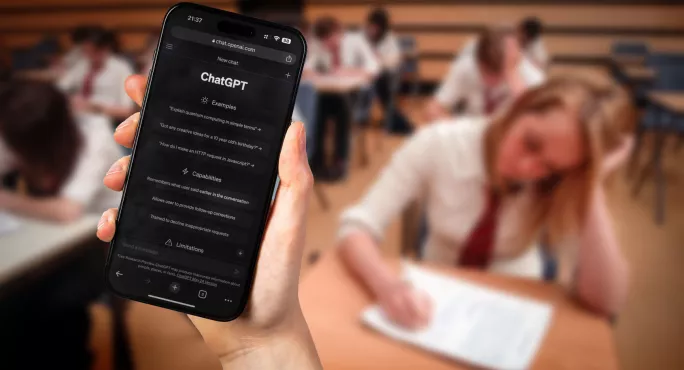Artificial intelligence (AI) is still unsuitable for use in high-stakes exams, though it has the potential to reduce workload for teachers, exam board AQA has said.
Responding to the Department for Education’s consultation on generative AI in education, which closes today, the exam board said AI currently needs close human supervision in any work it carries out.
Alex Scharaschkin, director for assessment research and innovation at AQA, said its research found AI can still be inaccurate or biased, meaning it isn’t recommended for marking or creating questions for important exams.
However, its analysis of AI tools such as ChatGPT concluded that AI could be used to “automate simple marking processes to provide quicker feedback, as well as help teachers create informal assessments in class, such as quizzes. This, in turn, would save time for both teachers and awarding organisations”.
AQA’s conclusions come after Ofqual chief regulator Jo Saxton said the prospect of AI replacing humans in marking exams is “miles away”.
Mr Scharaschkin said that, long term, AI had a “clear potential to help reduce teacher workload, which is crucial when it comes to improving teacher recruitment and retention”.
He added that AI “would be aiding teachers rather than replacing what they do”.
The researchers used AI tools such as ChatGPT, Alpaca, GPT-4 and LLaMA to test how they marked science papers.
Mr Scharaschkin suggested, as well as simple marking, AI could help with making quizzes on a topic, or for feedback on peer- or self-assessment, or for first draft of reports for parent-teacher conferences.
For school leaders, researchers suggested AI could be used to analyse performance data more quickly.
AQA researchers said AI could be particularly helpful in teaching computer science, as understanding it may soon become part of basic digital literacy.
In some schools, AI has been used in English literature to develop students’ literacy criticism skills.
Some of the limitations that AI still faces include struggling to cope with unusual situations, generating factually incorrect answers sometimes, and picking up biases and prejudice from the real world.
It was found that AI struggles to explain how a marking decision was reached, meaning all explanations would have to be reviewed by a human.
AQA also emphasised exam conditions and external marking are “more important than ever” to make sure exams stay fair as AI use grows, to make sure exams are testing “what students actually know”.
Mr Scharaschkin said: “AI has exciting potential to transform education and help teachers focus on what matters to them: teaching students in the classroom.
“If AI can reduce workload by helping with lesson planning and marking, then the brightest people will be more likely to become teachers and stay in the job.
“We need to remember, however, that AI tools are a bit like actors in Casualty: they can learn to use the language of doctors and sound like they have medical expertise, but they cannot perform an operation. They will always need close human supervision.
“AI is already a part of our lives and we must now consider if AI literacy will become a must-have skill, like literacy and numeracy, that will help young people find jobs, navigate everyday life and reach their full potential.”





